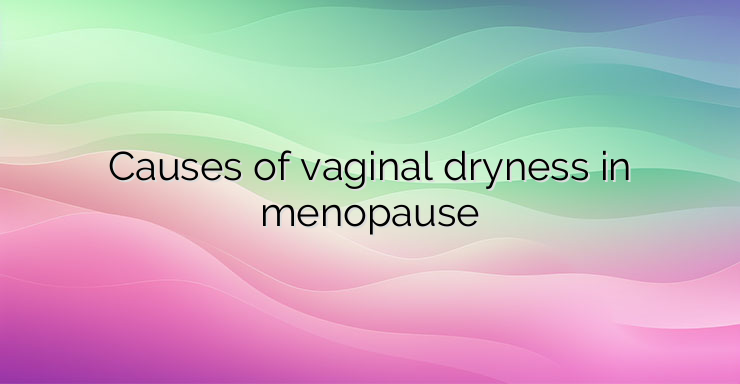Vaginal dryness is part of the genitourinary syndrome of menopause. The condition worsens with age and progresses with menopause. The reasons may be a reduced secretory function of the vaginal epithelium, which is associated with reduced blood supply to the vagina, thinning of the mucous membrane, changes in the microbiome and inflammatory processes. Vaginal dryness can also present with irritation, itching or burning outside of intercourse. Many women experience a disruption in lubrication during intercourse, and vaginal dryness can lead to painful intercourse, decreased libido, and sexual satisfaction. The transition to menopause is a key stage in the aging of the reproductive system. The cyclical change and rise in estradiol levels during premenopause, followed by significantly changing levels of this hormone during perimenopause, lead to significant changes in the reproductive system. Low levels of estradiol and the gradual loss of its functions are associated with an increased incidence of vaginal dryness. The progression of menopause and accompanying changes, as well as induced menopause due to surgical interventions – removal of the uterus and ovaries, as well as anxiety are all factors that influence vaginal dryness. Anxiety was the only modifiable factor associated with frequency of intercourse. Patients with lower levels of anxiety were found to have a lower incidence of vaginal dryness. More severe forms of anxiety are associated with more pronounced vaginal dryness in patients who have a lower frequency of sexual contacts. Short-term changes in serum estrogen concentrations have no significant effect on the risk of developing vaginal dryness. They are also observed outside menopause. These changes do not affect the action of the hormone on the epithelium of the vagina. The exact influence of estradiol levels in the early pre- and perimenopausal follicular vessel on vaginal gland secretion cannot yet be determined. It has been established that the leading importance for vaginal dryness is the progression of menopause and accompanying complex factors, such as psychosocial changes. Depression also leads to decreased sexual desire. Anxiety, in turn, changes vaginal lubrication, lowers libido, emotional and physical satisfaction. References: https://www.ncbi.nlm.nih.gov/pmc/articles/PMC6136974/


Leave a Reply